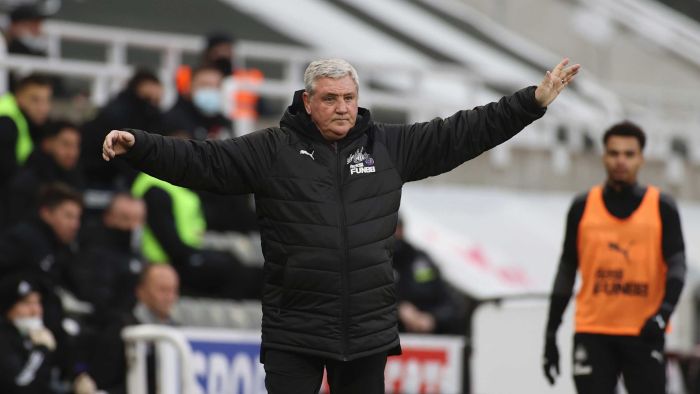After a string of postponed games and dozens of players going into self-isolation and with a new, more infectious strain of the virus on the rise, English football faces a COVID-19 reckoning.
The UK recorded 68,000 positive tests and a new record of 1,325 COVID-19 deaths on Friday.
Leaders have issued warnings hospitals are at risk of being overwhelmed.
But English professional sporting competitions have been permitted to keep playing while the rest of the country is unable to head into work or go to school.
Newcastle manager Steve Bruce says it is “morally” wrong for games to continue and West Bromwich Albion’s Sam Allardyce says a two-week “circuit breaker” should be considered.
But Spurs boss Jose Mourinho says postponing any more games could cause an “impossible” backlog for clubs.
The football leagues plan to keep the show going on, with the Premier League issuing a warning to clubs they will discipline players who breach its strict coronavirus rules.
Here’s why the situation may come to a head.
How has COVID-19 affected English football?
At least 60 games have been postponed across the country so far, with the problem far worse in the lower tiers and in the women’s game.
The Premier League only makes up for three of those matches, but the issues still run deep.
Manchester City and Aston Villa shut their training facilities in recent weeks after positive tests and the latter was forced to field a team of youth players in the FA Cup on Friday after 10 senior players contracted the virus.
The English Football League, which runs the three divisions below the Premier League, reported 112 positive cases out of 3,507 players and staff members who were tested in the latest round of checks. That is an infection rate of more than 3 per cent.
EFL clubs playing in the FA Cup — Derby, Shrewsbury, Brentford and Middlesbrough — were all missing players due to COVID-19.
In the Women’s Super League, Everton, Manchester City and Arsenal have all asked for games to be postponed due to being unable to field the minimum squad of 14 players.
The Women’s FA Cup has postponed whole rounds of matches and is reportedly considering deciding results via coin toss so later rounds can continue.
Worsening the matter has been some high-profile breaches of the coronavirus protocols, including Premier League players meeting at Christmas parties.
How have authorities responded?
The Premier League’s official response is that it has “no plan” to pause the season like it did in 2020.
It says it hasn’t even discussed the possibility of it.
Instead, the Premier League has warned clubs that handshakes, hugging and shirt swapping should stop and compliance officers will be sent into training grounds and dressing rooms on match days to ensure protocols are being followed.
Players and clubs face disciplinary action for not complying.
The EFL also plans to continue its games but will start testing players from 72 clubs twice a week to keep on top of any outbreaks.
Despite cancelling three matches this weekend, the Women’s Super League was scheduled to restart its season after the festive break with a clash between Australian captain Sam Kerr’s Chelsea and Reading on Sunday.




Why won’t they postpone the season?
In short, the colossal amount of money involved in the game.
Bruce, whose Newcastle club has had 19 players and staff members return positive tests, referenced the financial factor in recent days, saying it was coming before other considerations.
He questioned why serious cases, such as the sidelining of club captain Jamaal Lascelles and first-teamer Allan Saint-Maximin since November and the hospitalisation of a staff member, had not been a trigger to stop playing.
“Financially it’s right to play on, but for me, morally, it’s probably wrong,” Bruce said.
“I understand people want to see a game of football, but we are just as vulnerable as everybody else.”




Aside from the money side of the game, one big trouble with postponing matches is scheduling.
Many elite clubs face not only more than 20 remaining Premier League games, they also still have commitments in the FA Cup, League Cup and European competitions.
Postponed games will need to be caught up at some point, and more matches in fewer days increase the risk of injuries.
The trouble affecting many Premier League clubs is the men’s European Championships in June, which has already been rescheduled by 12 months due to coronavirus.
Spurs boss Mourinho has voiced his concern about a congested calendar as the postponed games add up.
“I believe it is an impossible situation for a club to have three matches postponed, especially if that club plays in Europe,” he said.
Meanwhile, Manchester United manager Ole Gunnar Solksjaer and Everton’s Carlo Ancelotti say the matches are important for the wellbeing of the players and the community.







